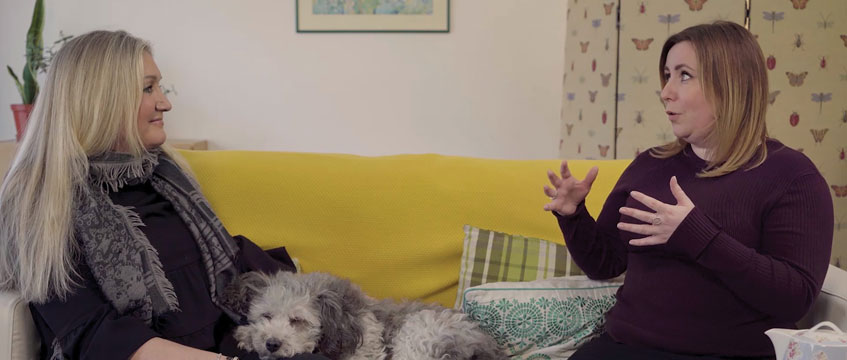We are working towards a culture at Bidwells where our people aren’t afraid to put their hand up and say they’re not OK. Earlier this year 10 of our colleagues did just that. They stepped forward and agreed to be filmed talking in depth about their mental health difficulties.
Our people knew the finished video (pictured) would be played on a big screen in front of 200 of their assembled colleagues in the ground floor café at our Bidwell House headquarters, in our 10 regional offices, and hosted on EG’s homepage. But they did it anyway.
We were humbled by their bravery and also content they felt able to be so honest and open. We’re not completely there yet but we think it’s a significant step in our journey to creating a culture where no one is judged for admitting they are struggling.
Training champions
Our wellbeing programme, BWell, is driven by a desire to remove the stigma around mental health. From the start, we were determined it wouldn’t be a tick box exercise or perceived as corporate wallpaper. We wanted it to be authentic. We simply began talking to people across our business about mental health and researching what others were doing.
We found many other businesses were also at the very beginning of their journey. Our internal roundtable discussions focused on what ‘good’ looked like. It wasn’t an easy task. Assessing measures and improvements around wellbeing isn’t easily tangible but we could feel the openness and engagement from our people.
We began writing blogs and reaching out to the business to gather thoughts on what was needed. Working together, we built a structure with a focus on holistic wellbeing. We introduced mindfulness training in all our offices and went on to train champions and key people to become mental health sign posters. Signing the Time to Change Pledge was a pivotal moment. It gave us great clarity on what we had achieved and implemented. In January, we partnered with a local film company, DragonLight Films, to produce our short documentary with the target of sharing on Time to Talk Day that month.
We were overwhelmed by the engagement of people across the business, not just those who took part directly. We think it’s evidence of how far we have come.
More than box ticking
BWell now has its own seat at the table of every board meeting agenda. Our wellbeing strategy is not a list of initiatives in order to tick a box. We believe a wellbeing strategy is a commitment and culture which recognises challenges and change. A series of initiatives that support the wellbeing of its people. This programme now sits at the heart of our core values and in our day-to-day business.
What advice would we give others that are earlier in their journey? I would simply say this – don’t get too hung up looking for measures, just focus on doing the right thing. Our society is now ‘on’ 24/7 so we are trying to create a workplace culture that empowers people to bring their whole selves to work. To be the best version of themselves.
The boundaries between work and life are now so blurred, we are juggling so much at any one time that we need work to be a safe place where people can put their hands up for help. The people we worry about the most are the ones who soldier on in silence. If we can catch just one person then we’ve succeeded in changing our culture for the better.
Rebecca Watts is HR business partner and wellbeing lead at Bidwells











